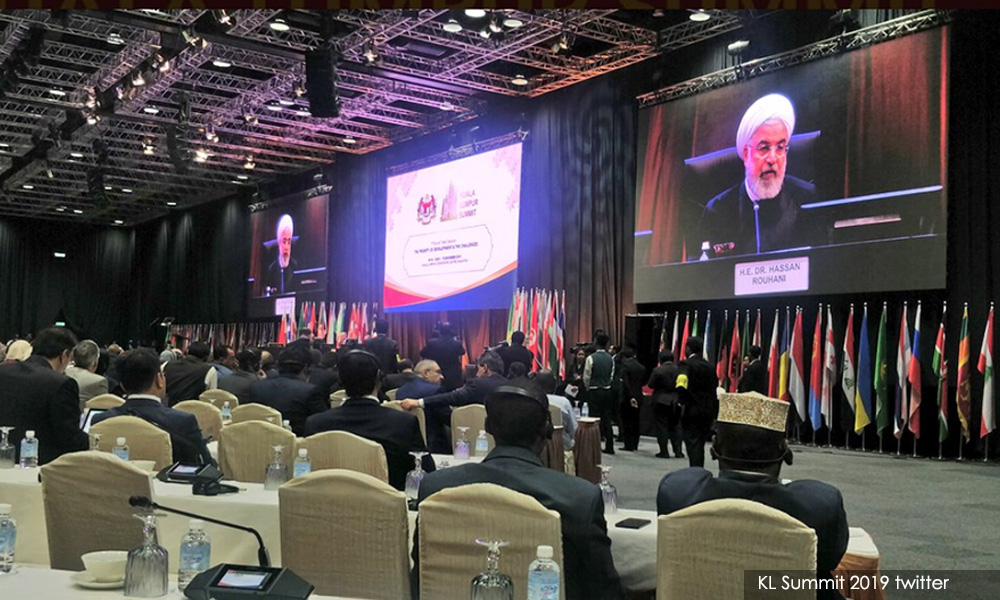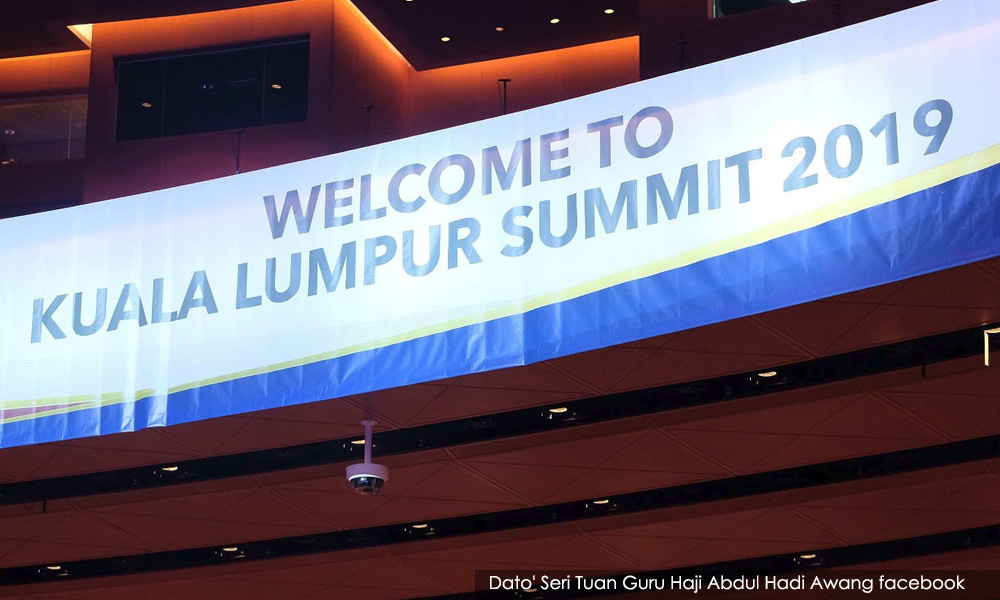COMMENT | After the conclusion of the KL Summit of Islamic countries, I am left with doubts as to the real purpose of the summit, whether it sought to replace the Organisation of Islamic Countries (OIC) under the leadership of Saudi Arabia or to complement the functions of this umbrella organisation of Muslim countries.
Malaysia under the leadership of Prime Minister Dr Mahathir Mohammed hosted the summit and provided the leadership.
Several Muslim countries, especially their principal leaders, were invited to discuss the plethora of problems faced by Muslim nations and how to find a way out of the imbroglio.
It was clearly stated at the outset that the summit was not about Islam but the problems faced by Muslim nations.
However, even before the summit could begin, cracks appeared.
Thinking that the summit was meant to displace the OIC, Saudi Arabia and Pakistan at the eleventh hour decided against accepting the invitation.
Saudi Arabia's ruler was straightforward in saying that the OIC was the best forum to discuss Muslim matters and not the summit.
Pakistan not wanting to displease its major benefactor, Saudi Arabia, wiggled out after giving some weak excuses.
Indonesia’s participation without its president or second-in-command was not something beneficial to the summit, considering the country has the biggest Muslim population in the world.
However, countries not aligned with Saudi Arabia attended the summit in full force, especially the main leaders of Turkey, Iran and Qatar.

Their presence was sufficient to suggest that the summit sought a subtle challenge to the status quo of the OIC.
An alternative discourse is something necessary and timely to the one provided by the OIC.
But unfortunately, the discourse in the summit was too timid to even provide a platform for the challenge.
Iran and Turkey might have provided some clues as to how to proceed in the future.
With some exceptions, there was a complete lack of an intellectual paradigm, thus reducing the contents of the summit to some mundane matters.
Even if an alternative paradigm was not forthcoming at the summit, something ought to have been done to go beyond the OIC. Surely, there were expectations from the participants to grasp and debate matters of great interest both to the Muslim and non-Muslim world.
Unfortunately, myopic thinking on the part of the participants narrowed the scope only to the Muslim world, forgetting how connected it is to that of non-Muslims.
It was this shallow thinking that dominated the discourses in the summit to the exclusion of the non-Muslim world.
However, the reality is far different from this where both the worlds are very much interconnected in areas such as politics, government, governance, human rights, trade, investments and others.
In this respect, the summit was something farfetched from the reality on the ground.

The relationship between both worlds is based on conflict and cooperation. If there had been discussions on these two aspects, the summit would have attracted people from all backgrounds.
In a way, the earlier exhilaration for the summit died down as soon as it started. It soon boiled down to discussions on trade, investment and the development of mechanisms of common exchange between the Muslim nations.
One delegate from Malaysia displayed his communal bias by even suggesting the prioritisation of Muslims buying goods produced by Muslims without really fully grasping the full ramifications of moving towards the direction of disconnecting with the rest of the world.
The KL Summit started with much fanfare and publicity, but it soon faded out as paradigmatic concerns gave way to mundane issues.
Even the three countries that were opposed to Saudi Arabia were unable to provide the intellectual leadership to steer the summit away from the OIC. For them, it was just another international political platform.
Mahathir had good intentions in organising the summit. He wanted to bring Muslim countries together for the realisation of a common objective.
But then, in the present turbulent Muslim world of political and ideological differences and the manner of their integration with global capitalism, the best of intentions are not sufficient.
What is needed is a broad concept that will not merely highlight the various differences but also to bring humanity together.
P RAMASAMY is Perai assemblyperson and deputy chief minister II of Penang.
The views expressed here are those of the author/contributor and do not necessarily represent the views of Malaysiakini.

